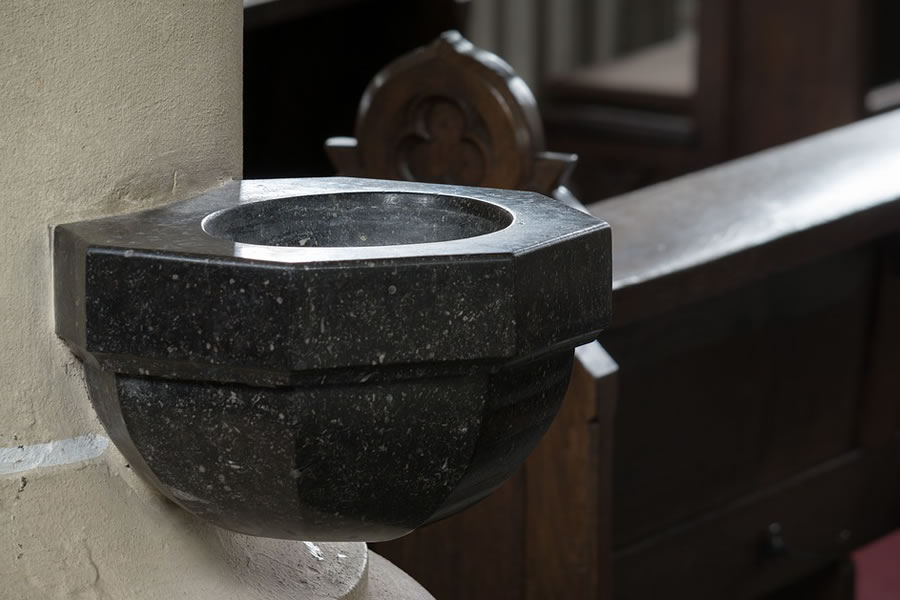Parish Blog

Blessing Oneself with Holy Water
10-15-2017Pastor's LetterRev. Gregory B. Wilson, VFDear Brothers and Sisters in Christ,
Last week I explained the reason we will be invited to offer, for a time, the Prayer to St. Michael after Sunday Masses (after the dismissal and before the final hymn). May each of us "put on the full armor of God" in this spiritual battle, which is "not against flesh and blood, but … against the spiritual forces of evil in the heavenly realms." (Eph. 6:11, 12).
Pope St. John Paul II requested the faithful to take up again the praying of the Prayer to St. Michael: "May prayer strengthen us for the spiritual battle we are told about in the Letter to the Ephesians, 'Draw strength from the Lord and from His mighty power' (Eph. 6:10). The Book of Revelation refers to this same battle, recalling before our eyes the image of St. Michael the Archangel (Rev. 12:7). Pope Leo XIII certainly had a very vivid recollection of this scene when, at the end of the [19th] century, he introduced a special prayer to St. Michael throughout the Church. … I ask everyone not to forget it, and to recite it to obtain help in the battle against the forces of darkness and against the spirit of this world." [Pope St. John Paul II, Regina Caeli, 24 April 1994] Amen!
From time-to-time, I would like to offer reminders of why we do some of the things we do and what some of our symbols mean. I am grateful to Fr. Kurt Belsole, OSB, a monk of Saint Vincent Archabbey, for our reflections. Let's start atthe beginning:
According to an honored practice that goes back centuries, all Christians who enter a church take holy water and sign themselves with the Sign of the Cross as a reminder of their baptism. They cross themselves and say: "In the name of the Father, and of the Son, and of the Holy Spirit. Amen." This is so similar to the formula in which they were baptized when the celebrant of baptism inserted the person's name and said, "I baptize you in the name of the Father, and of the Son, and of the Holy Spirit," each time immersing or pouring water on the person being baptized.
Entering the church and blessing oneself with holy water reminds one of his or her baptism when they became an adopted son or daughter of God, when they were brought into the very life of the Blessed Trinity, when they had all of their sins forgiven, when they became a member of the Church, and when they became fellow citizens with the saints and members of the household of God (Eph. 2:19). This action also reminds one that they have drawn near to the city of the living God, the heavenly Jerusalem, to a multitude of angels in festal gathering, to the spirits of the just who have been made perfect, and to Jesus, the mediator of a new covenant (see Heb. 12:22-24).
BACK TO LIST